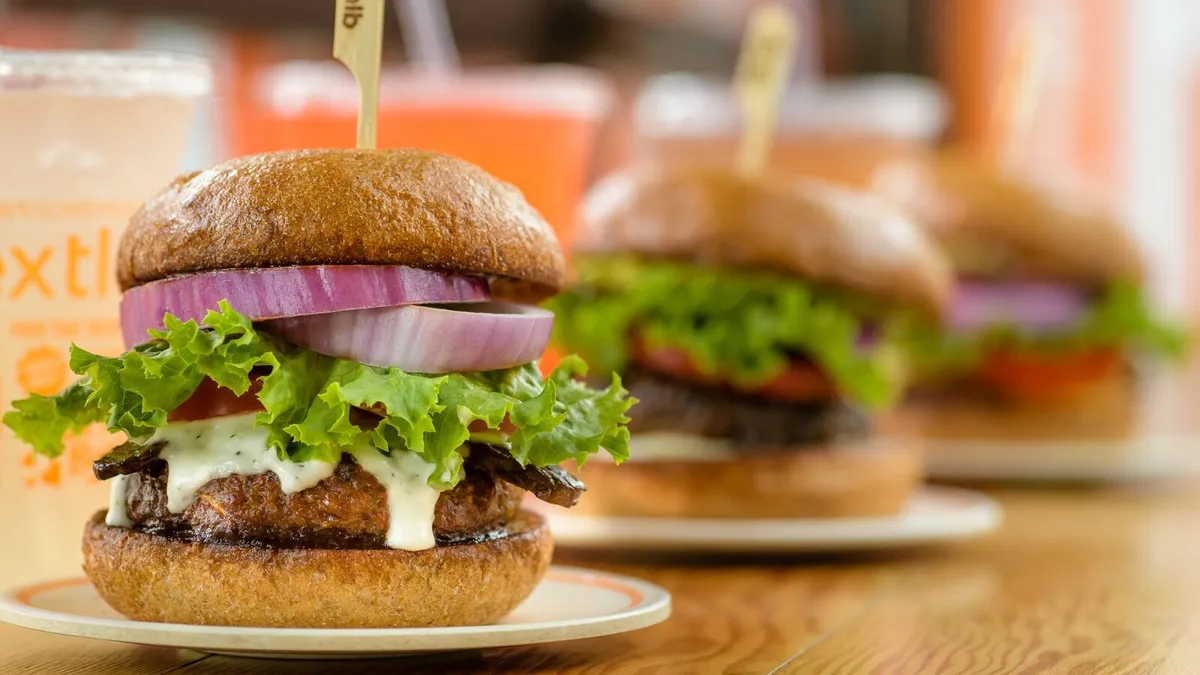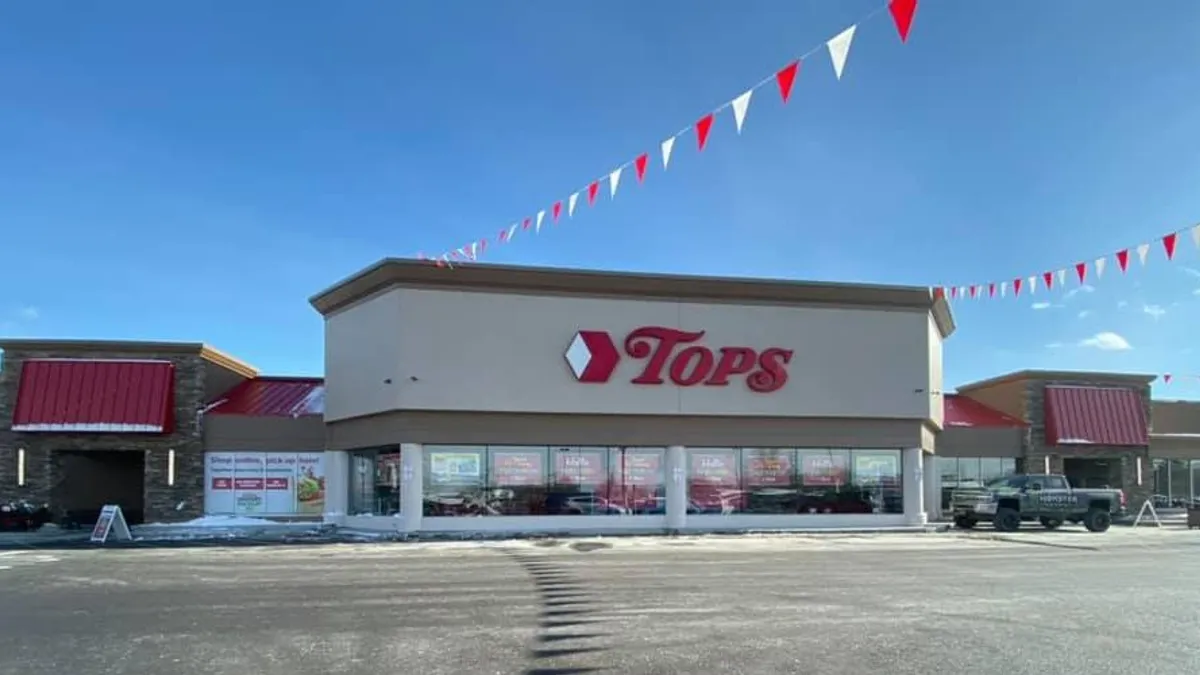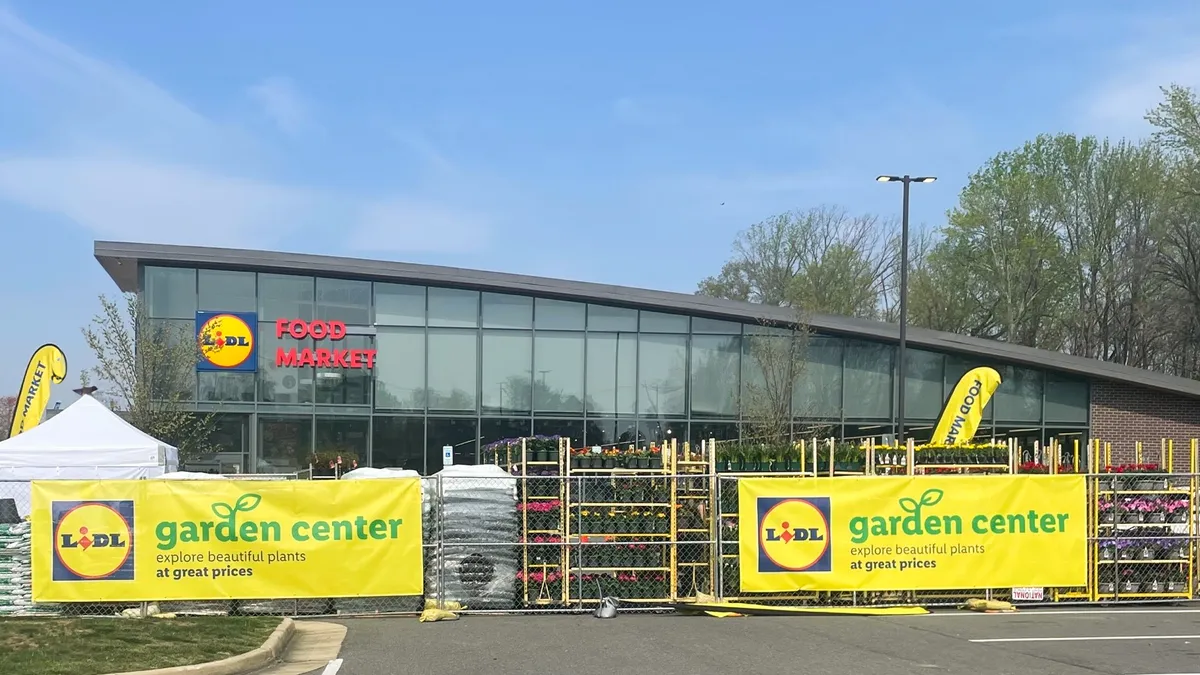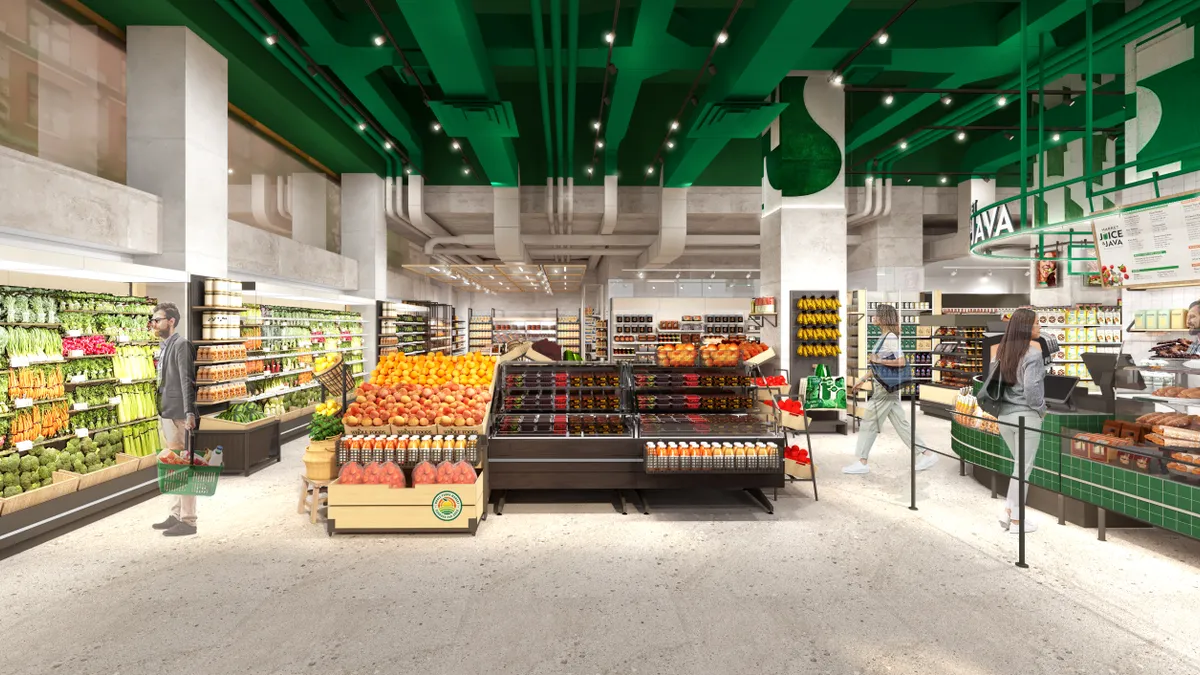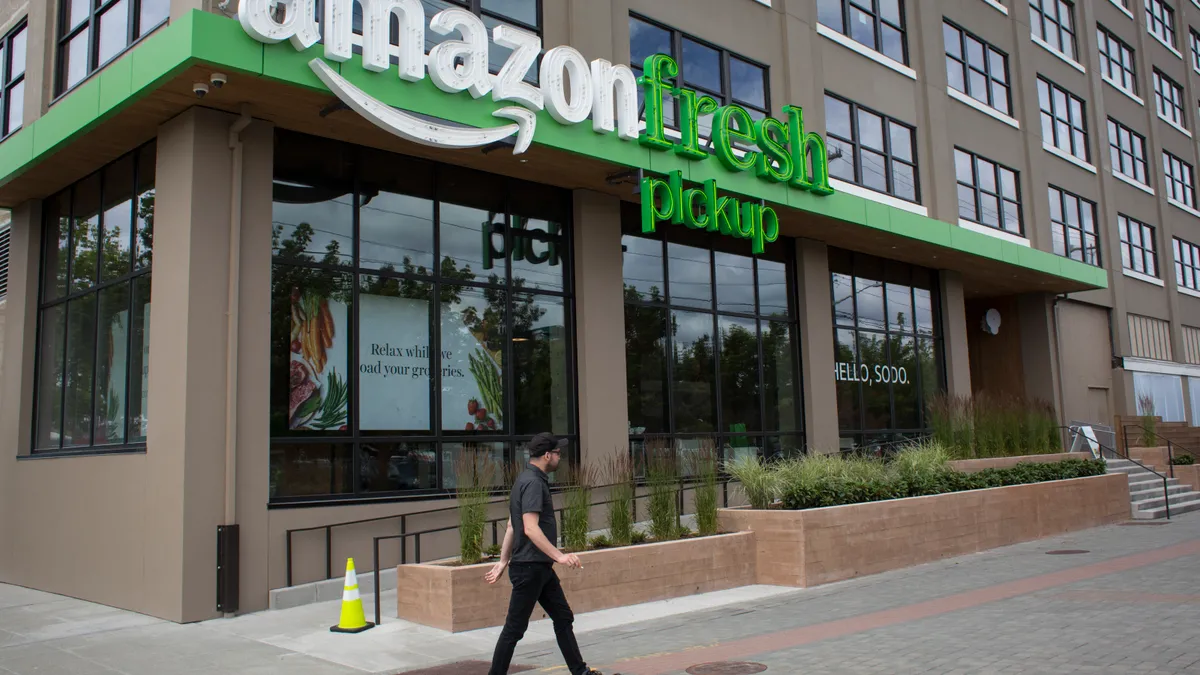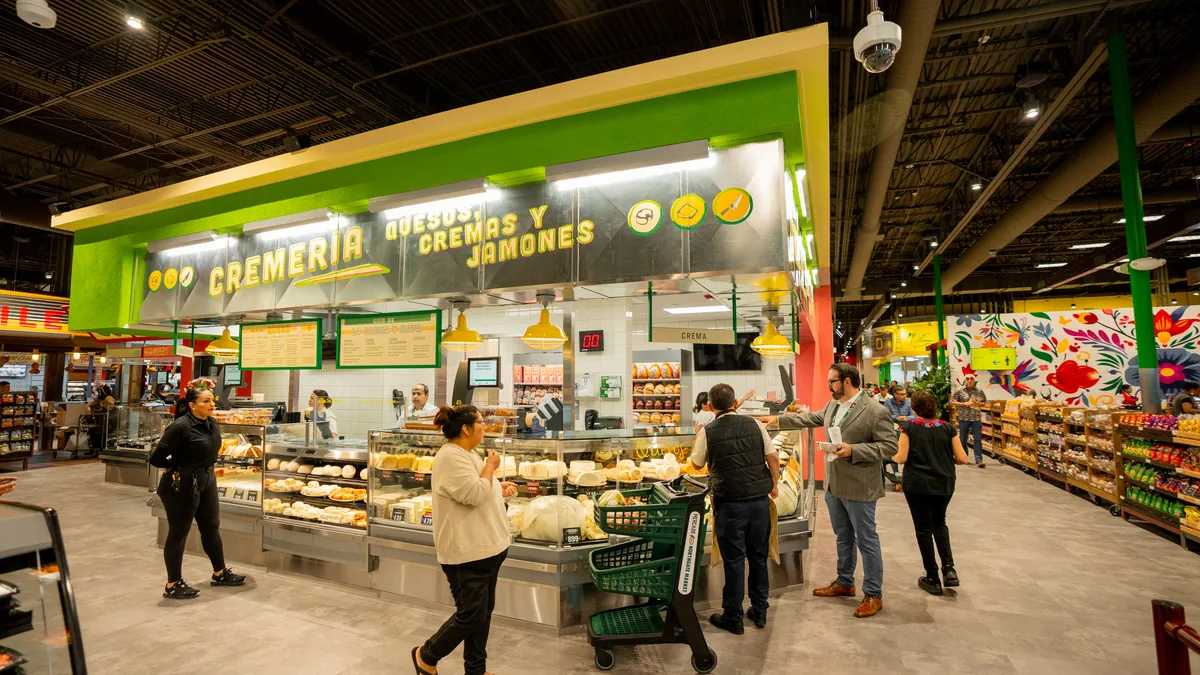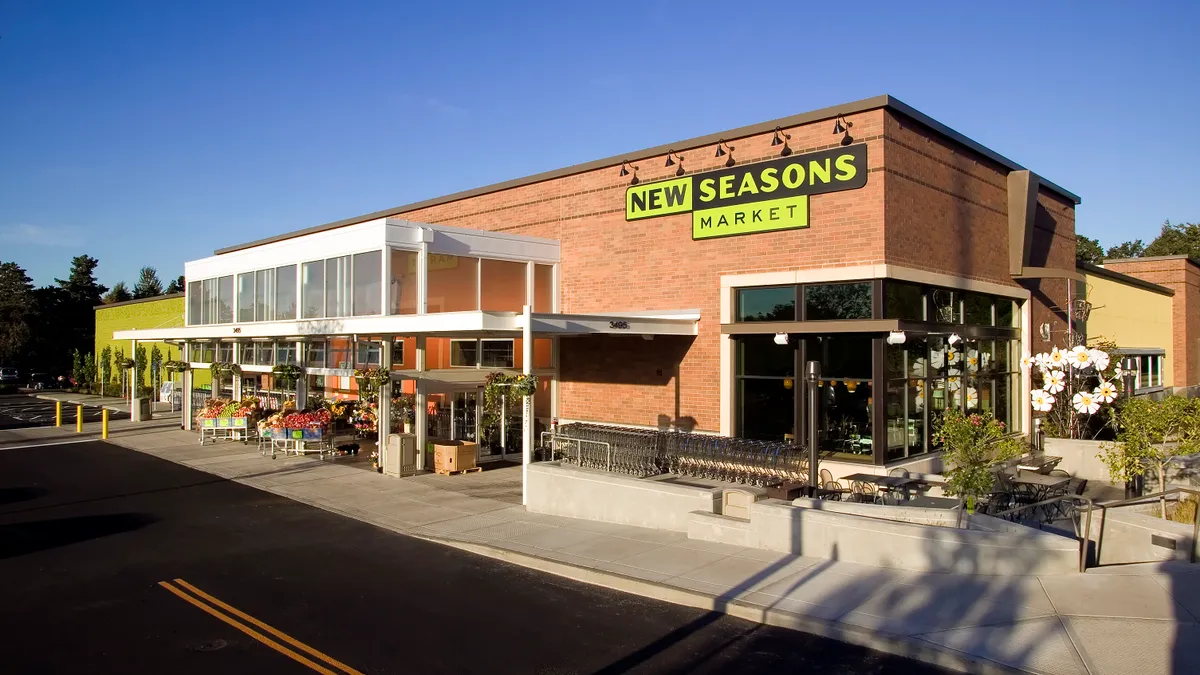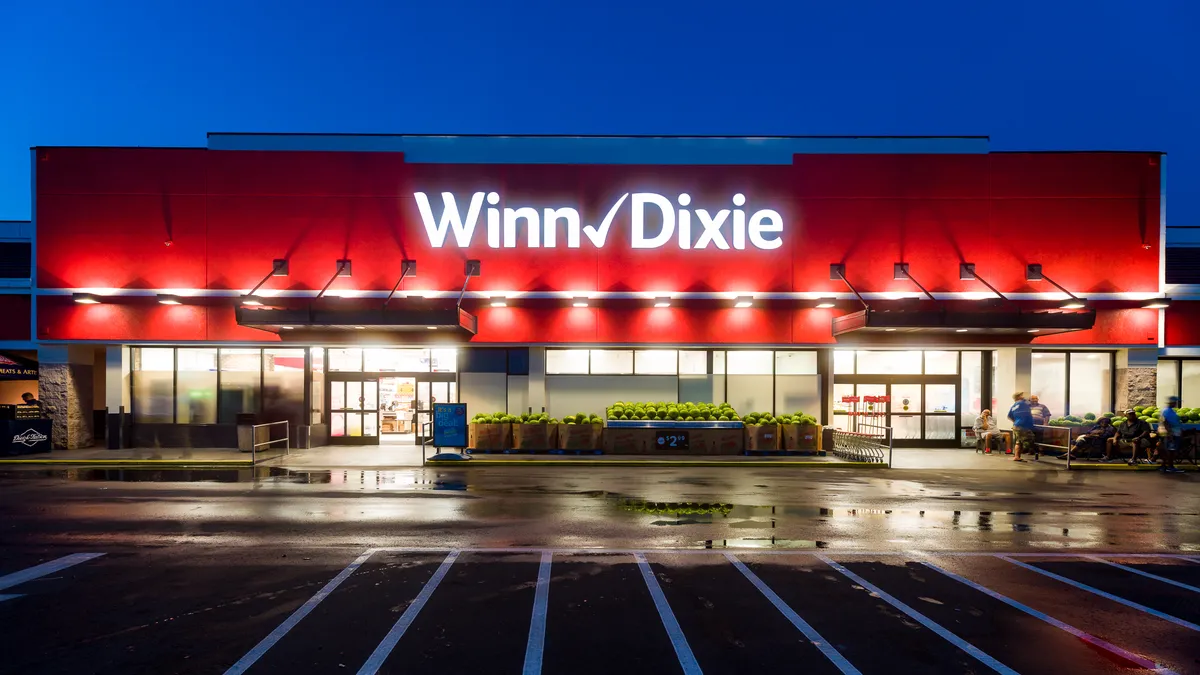When Matt de Gruyter and wife Cierra wrote out the business plan for their vegan burger restaurant, it didn’t include putting a location inside a supermarket. But when Whole Foods came calling, the couple knew they couldn’t pass up the opportunity.
“I wouldn’t be interested in partnering with any other supermarket but Whole Foods, because the experience they offer so perfectly complements what we’re doing,” de Gruyter said.
What the de Gruyters are doing, precisely, is putting a plant-based spin on the gourmet burger joint. All the hallmarks of Bareburger, Shake Shack and other burger favorites are evident in each Next Level Burger location, from the wood paneling to the conspicuously placed tap handles ready to dispense craft brews.
But instead of greasy beef patties, Next Level serves up patties made from beans, quinoa, mushrooms and other plant ingredients. In place of real bacon, the upstart chain has fashioned a substitute out of tempeh. There’s dairy-free milkshakes and meatless chili and vegan hot dogs, too. Many of the company's dishes share the same kind of indulgent names, special sauces and piled-on toppings as those found at trendy burger restaurants around the country.
How it happened
At Next Level’s first location in Bend, Oregon, patrons lined up to try dishes like the Next Level Dog and the Mexicali burger. One of these patrons was Alex Payne, co-founder of Twitter, who loved the restaurant so much he became an investor. Just one year after opening their proof of concept, the de Gruyters decided to build a second location in foodie-packed Portland.
It was there, after a second successful opening, that Next Level Burger attracted another highly influential patron: An executive chef at Whole Foods, who just happened to live nearby.
The chef brokered a meeting between de Gruyter and Whole Foods' Northwest regional manager. Over a lunch of vegan burgers, the two sides began hammering out a deal that would place Next Level inside the retailer’s new 365 by Whole Foods location in the Portland suburb of Lake Oswego. The partnership was part of Whole Foods’ “Friends of 365” program, which gives in-store space to promising local restaurants and cafes. Partners at other locations include coffee shops, juice bars and an Asian street food chain.
Erika Dimmler, a spokeswoman for Whole Foods, told Food Dive that aside from making tasty burgers, Next Level also aligned with standards the grocer maintains throughout its stores.
"One of the things we really loved about Next Level Burger was its focus on organic produce," she said. "They make that a priority along with non-GMO ingredients. Then the whole clean-eating model is a pretty natural fit for Whole Foods Market."
With the Lake Oswego location, which opened last summer, Next Level Burger once again struck a chord with local patrons hungry for plant-based alternatives to American comfort food.
Whole Foods, which for years has put bars and restaurants inside its stores, was so pleased with the results that it quickly decided to expand Next Level's test run. And so, last month — just one year after Next Level opened its 365 location — the popular chain fired up its grills at Whole Foods' Roosevelt Square store in Seattle.
"There’s a real appetite for this, even for people who wouldn’t classify themselves as vegan," said Dimmler.
Plant-based demand is booming
Both Whole Foods and de Gruyter credit much of Next Level Burger's success to the growing demand for plant-based foods. According to data from HealthFocus International, 17% of U.S. consumers aged 15 to 70 currently claim to eat a predominately plant-based diet, while 60% report to be cutting back on meat-based products. Of those who are reducing their intake of animal-based proteins, 55% say the change is permanent, and 22% say they hope that it is.
"There’s a real appetite for this, even for people who wouldn’t classify themselves as vegan."

Erika Dimmler
Spokeswoman for Whole Foods
One consumer who recently made the switch was de Gruyter, who estimates he used to consume as much as eight pounds of meat per week before Cierra, a longtime vegan, convinced him to give up the habit. It was their love of plant-based foods that inspired him to leave his job in private equity and start Next Level Burger. He noted that the restaurant's business plan, which he wrote in 2013, cited research showing one-third of consumers were trying to cut back on dairy and meat in their diets. Today, that number has doubled.
As demand has evolved, so too has the food science underlying many plant-based dishes. Now, scientists and chefs alike are able to manipulate plant ingredients into proteins, flours, stabilizers and other culinary building blocks. Beyond Meat and Impossible Foods, for example, have created plant-based burgers that mimic the taste and appearance of a real beef burger — all the way down to the bloody juice that seeps from the patties.
Next Level features Beyond Meat's signature Beyond Burger, which de Gruyter described as "something unique in the history of human civilization." The rest of the menu was developed by Cierra, who learned to cook with plant-based ingredients after the couple had their first child.
In partnering with Next Level Burger, according to Dimmler, Whole Foods has created a unique store experience for its customers. That’s something many other grocers are also hoping to do as they look to differentiate themselves in a crowded market. Retailers have also noted the increase in bar and restaurant spending, which surpassed grocery spending for the first time last year, and want to build upon strong sales in prepared foods.
According to research firm Technomic, supermarket foodservice sales are expected to outperform restaurant sales this year, with projected 6.5% growth.
“Millennials and especially Gen Y consumers ... want a trip to the store to be an experience,” Steve Thomas, chief marketing officer with Windsor Marketing Group, told Food Dive. “They want it to be unique. They want to feel as though the retailer that they’re visiting understands them and has tailored some certain things to their specific likes.”
Hy-Vee has had notable success with its Market Grille restaurants, which serve up all-American fare along with wine and beer. The Des Moines chain has also become the largest franchisee of Wahlburger’s, the burger chain started by actor Mark Wahlberg and his brothers, with 26 locations planned in the Midwest.
Kroger also recently announced it will open a comfort food restaurant called Kitchen 1883 near its Cincinnati headquarters, and H-E-B has added True Texas BBQ restaurants to several stores in the Lone Star state. Whole Foods, meanwhile, unveiled a fast-casual Brazilian restaurant this summer at one of its Atlanta stores.
“Millennials and especially Gen Y consumers ... want a trip to the store to be an experience. They want it to be unique. They want to feel as though the retailer that they’re visiting understands them and has tailored some certain things to their specific likes.”

Steve Thomas
Chief marketing officer, Windsor Marketing Group
While restaurants can provide a much-needed revenue stream for grocers, experts caution that the venture can be difficult for retailers to manage. Staffing, designing the space, meeting regulatory standards and crafting a menu that resonates with customers are all challenging. Even those retailers that choose to co-locate with restaurants can face difficulties integrating their locations into stores.
“Some of the biggest challenges have to do with the amount of real estate they’re giving up in-store," Erik Thoresen, principal at foodservice consulting firm Technomic, told Food Dive. "If you’re able to generate a profit out of a restaurant in that space, then it’s a matter of finding the right folks in terms of design and execution and operations to make that work.”
De Gruyter said he has nationwide ambitions for Next Level Burger and has received inquiries from as far away as Paris and Tokyo. For now, though, he remains focused on the chain's partnership with Whole Foods, which he hopes will expand to further locations in the future.
“[Whole Foods] has been really supportive, and not just in a rah-rah sense,” he said. “They’re really putting their money where their mouth is.”



